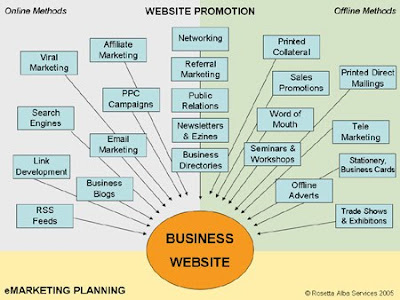How far can you take a web site using SEO? On the surface, that depends solely on your ability to implement strategies and tactics to overcome the competition. Yet when you peel back the curtain, you realize there’s a lot more going on requiring you to have what essentially boils down to a psychology degree.
PragmatismFrom helping site owners deal with an unfocused business offering all the way to understanding what goes through the minds of users performing a search, it’s a psychological process. In many ways it’s also an emotional thing. And if you don’t grasp these factors, you yourself are going to need a psychiatrist. :-)
This article isn’t a how-to as far as overcoming psychological issues – I’ll leave that for a future article. Because that alone could be book-length. Instead, this is more about waking you up if you’re not already awake to the fact that psychology is a critical aspect of what we do. And to get you thinking about it.
I stopped counting years ago the number of site owners who THINK they have a well defined business model, only to have me rip that notion to shreds with just a few questions during our first meeting. What are your services? Who is your market? Do you have different types of customers? What are your immediate business goals? What are your long term business goals?
- The Not So Unique Offering
Just one out-cropping of the lack of focus issue is where you’re dealing with someone who swears what they’re doing is unique. They will jump up and down with passion, throwing a plethora of buzz-words that (they think) proves what they’re offering is unique. Which may be possible. Except if so, they’re still going to need to use phrases that other people use when looking for things. And that means competitor results even if they’re just perceived competitors. Site owners don’t like hearing that.
Or it just may be the case that no matter how it’s communicated, the perception of users doing a search that this site’s offering is just like all the others out there, could very well be so insurmountable that you have to help the site owner accept this reality. And help them find a way to adapt or adjust. Even when they’re emotionally attached to that “you won’t believe how great and unique this is” mentality.
- SEO is Easy / Instant / Voodoo / Bogus…
We all know about these. They’ve been discussed over and over. Yet the reason they’ve been discussed so much is because they’re now standard fare. And it’s up to us to understand how to break through that thinking.
- The Evolving / Changing Business
Many of my clients come to me at a time when they’re hovering over keeping what works and scrapping it to offer something new altogether. Maybe the owner’s burned out. Maybe their market dried up. Maybe they think this is the perfect time to shift focus. Whatever the reason, you’re going to have to help them break through the indecision and commit to one path. Otherwise you’ll never be able to truly optimize the site. Because it’s going to be a moving target.
All of this just becomes exponentially more challenging when you come to find out that the SEO is being seen as a savior to an already dying business. That it’s a last ditch effort to bring in revenue before the creditors bang down the doors at your client/employer’s offices. Especially when they’re still in the denial or anger stages. Because if they are, they may not even see that it’s hopeless. Because if they did, why else would you be in dialogue with them? Or maybe they’re in the last throes of false hope.
Whatever the stage of grieving they’re in, it just might be up to you to wake them up to reality. Unless you want to take on yet one more client who will work you to near death then inform you that they can’t pay you what you are otherwise owed. Because they just reached acceptance that their business is dead.
Even when all else is in alignment with the site owner, as an SEO you need to understand user mental models. You need to get into the mind of the user for all sorts of reasons related to Information Architecture, yet just as vital, you need to do so because only then will you be able to help determine the best keyword phrases for this unique site.
How well can you delve into the minds of users? Especially when it’s for a market you have no previous experience working in. Can you step into the shoes of a victim of mesothelioma? If not, you’re going to miss 80% of the people who are really looking for an attorney specializing in that highly niche field. Because it’s not all about “mesothelioma lawyer”. I know. Been managing one of those sites four years this November.
Seriously though – how good are you at getting out of your own mind and into the minds of your client/employer, the marketing manager, the developer(s), the graphic designer, hosting provider, product manager? And how good are you at looking at things from the eyes of the site’s ideal client or customer? Without polluting your thinking with your own experience/linguistic bias, intellect, emotional filters?
The better you are at detaching from your own inner mind and emotional filters, the better your chance of seeing things from and knowing how to reach the mind/emotional buttons of those people. And THAT is quite often much more important than knowing when to use h1 tags or how to get back-links that count…
Read more on www.searchenginejournal.com

Psychology of SEO
![]()








